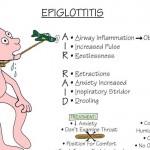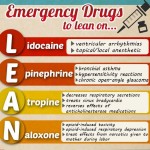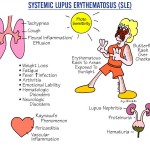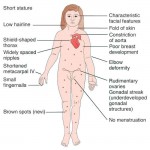Epiglottitis is a life-threatening condition characterized by inflamed epiglottis tissue. In most cases it is caused by infection. The symptoms of epiglottitis usually develop quickly and get rapidly worse, although they can develop over a few days in older children and adults. Epiglottitis is a medical emergency. Seek immediate medical help. Do not use anything to press the … [Read more...] about Nursing Mnemonics: Epiglottitis
Nursing Infographic: Emergency Drugs
In the hospital setting, emergencies typically occur in emergency departments (EDs) and intensive care units (ICUs). But many also take place in progressive care units or general nursing units. And when they do, they can cause marked anxiety for nurses—especially those unfamiliar or inexperienced with the drugs used in these emergencies. Generally, the goal of using emergency … [Read more...] about Nursing Infographic: Emergency Drugs
Nursing Guide: Systemic lupus erythematosus (SLE)
Systemic lupus erythematosus (SLE) A chronic inflammatory condition caused by an autoimmune disease.. It can affect the skin, joints, kidneys, brain, and other organs. Causes: The underlying cause of autoimmune diseases is not fully known. SLE is eight times more common in women than men. The causes of SLE are unknown. However, heredity, viruses, ultraviolet light, and … [Read more...] about Nursing Guide: Systemic lupus erythematosus (SLE)
Nursing Guide: Turner Syndrome
Turner syndrome or Ullrich-Turner syndrome is a chromosomal inability where one or all parts of a sex chromosome are absent. It is also called Gonadal dysgenesis. This abnormality is a genetic disorder that affects a girl’s development. Signs and Symptoms 1. Short stature. Girls with Turner syndrome who aren’t treated for short stature reach an average height of about 4 feet … [Read more...] about Nursing Guide: Turner Syndrome
Nursing Mnemonics: Preload vs Afterload
Nursing Mnemonics: Preload vs Afterload Preload Volume of of blood in ventricles at end of diastole (end diastolic pressure). Afterload Resistance left ventricle must overcome to circulate blood. … [Read more...] about Nursing Mnemonics: Preload vs Afterload




